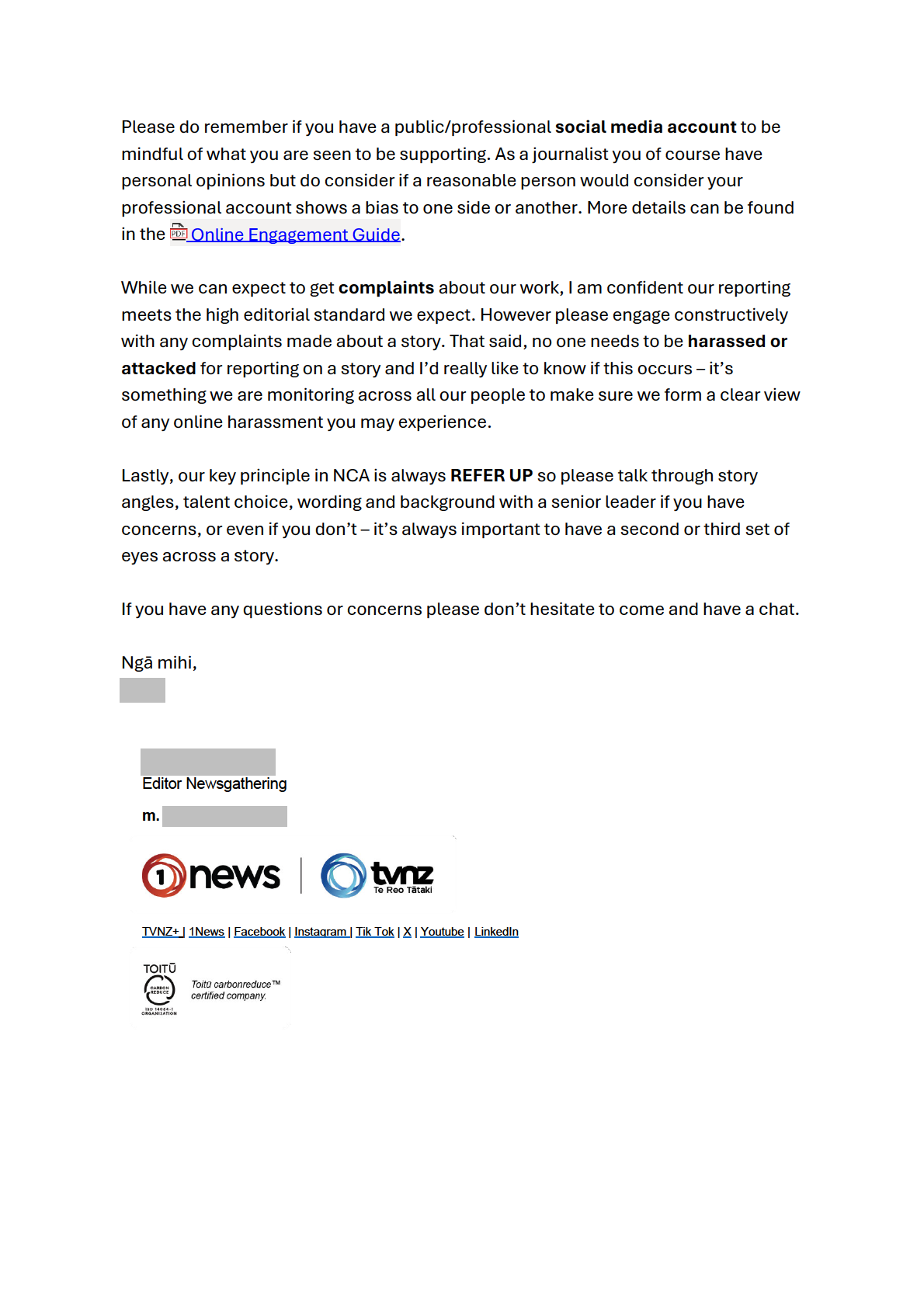From:
To:
News Ch Mail; News AK Mail; News Wn Mail
Subject:
Middle East reporting
Date:
Tuesday, 7 May 2024 2:31:44 pm
Attachments:
image001.png
image002.png
image003.png
Importance:
High
Kia ora koutou,
We have been doing a good job of reporting on the recent conflict in the Middle East
for many months now. However, I wanted to take the opportunity to reinforce the key
principles that should be informing our reporting on the conflict.
This guidance can and should be applied to all our reporting but must always be front
of mind when covering what is happening in Israel and Gaza:
Stick to the facts. Stories about the current Israel/Gaza conflict don’t require
embellishment. Keep the information accurate and understandable.
Language matters. Avoid using words that pass judgement – for example, describing
any action as “justifiable, indefensible, unreasonable, legitimate” is not our call to
make. Also take out any emotive pointers like “sadly” or “tragically”. It is for our
viewers to decide how they feel about a story.
Attribution is vital. It is very hard to get verified information from the conflict area,
especially within Gaza itself. We rely on our media colleagues at AP, BBC and
Reuters for verified information and also the United Nations. However, figures from
either the Israeli Government or IDF and Hamas agencies should be attributed so our
audience can understand the context.
For
local commentators, be wary of reporting assertions from pro-Palestinian or
pro-Israeli groups without challenge – it is our responsibility as journalists to be
informed of the story and where specific allegations are made against individuals or
organisations, either counter those, ensure it is clearly identified as opinion if it
cannot be verified or give those facing the allegation an opportunity to respond.
Do not
over-represent or
under-represent views. And think about the vision you use
– consider, are we fairly representing both sides visually? Also be mindful of cutting
down overseas content for time that balance isn’t compromised.
More generally,
acknowledge your own feelings on a story and work to be impartial.
Coverage from Gaza is shocking and can be troubling to report on it, but our job is not
to pass judgement or advocate for any group.

